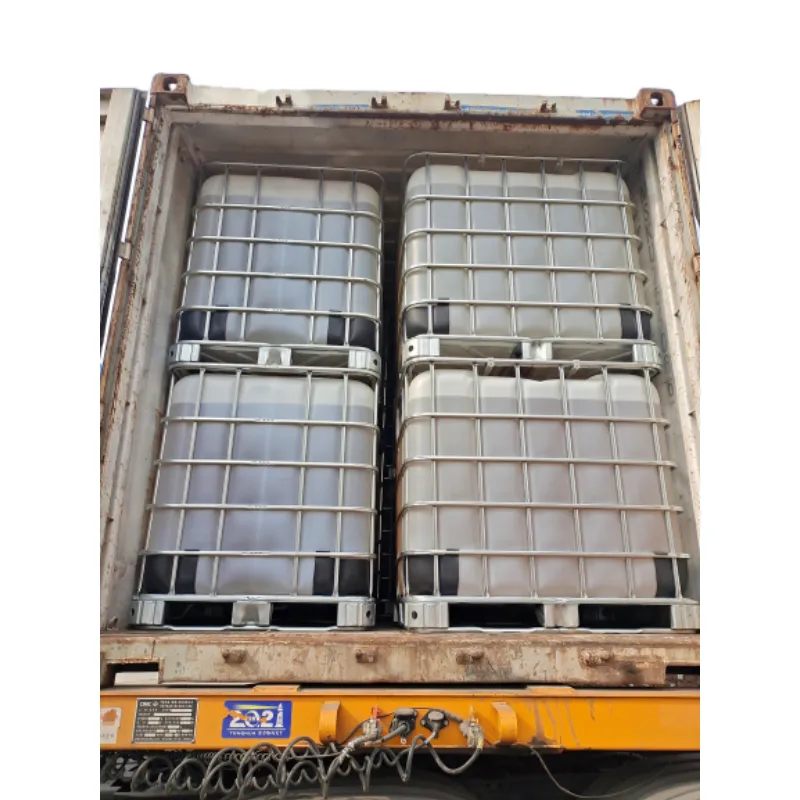
Understanding the Benefits and Uses of Diammonium Phosphate Fertilizer in Agriculture
The Role of Diammonium Phosphate Fertilizer in Agriculture
Diammonium phosphate (DAP) is one of the most widely used fertilizers in modern agriculture, known for its high nutrient content and effectiveness in enhancing crop yield. As a compound fertilizer that contains both nitrogen (N) and phosphorus (P), DAP serves as a crucial tool for farmers aiming to optimize plant growth and increase productivity.
Composition and Benefits
Diammonium phosphate is chemically represented as (NH4)2HPO4 and is produced by reacting ammonia with phosphoric acid. This results in a granular fertilizer that is rich in essential nutrients. The nutrient content typically consists of around 18% nitrogen and 46% phosphorus pentoxide (P2O5). The nitrogen in DAP aids in plant protein synthesis and promotes vegetative growth, while phosphorus is vital for root development, flowering, and fruiting.
The high solubility of DAP ensures that plants can readily absorb the nutrients it provides, making it particularly effective in supporting crop growth during the critical phases of development. Additionally, DAP is compatible with a wide variety of crops, including cereals, vegetables, and fruits, making it a versatile choice for many farmers.
Application Methods
DAP can be applied in several ways, including broadcasting, banding, and fertigation. Broadcasting involves spreading the fertilizer evenly over the field, while banding places it directly into the soil close to the plant roots. This method can enhance nutrient uptake and minimize loss due to leaching. Fertigation, the application of fertilizers through irrigation systems, allows for precise nutrient delivery and is increasingly popular among high-tech agricultural operations.
It is essential for farmers to assess soil nutrient levels and understand the specific needs of their crops before applying DAP. Soil tests can determine existing nutrient levels and guide the appropriate amount of fertilizer to apply, as over-fertilization can lead to nutrient runoff and environmental harm.
diammonium phosphate fertilizer

Environmental Considerations
While DAP is a highly effective fertilizer, its use is not without concerns. Phosphorus runoff from fields treated with DAP can contribute to water pollution, leading to the eutrophication of water bodies. This process results in excessive growth of algae, depleting oxygen levels and harming aquatic life. To address these environmental issues, farmers and agronomists are encouraged to adopt best management practices, such as buffer strips and cover cropping, to mitigate nutrient runoff.
Moreover, precision agriculture techniques are gaining traction, allowing farmers to apply fertilizers more efficiently and sustainably. Technologies such as soil moisture sensors and GPS-guided equipment can help optimize DAP application rates, thus improving nutrient use efficiency and reducing environmental impacts.
Economic Impact
The economic implications of using DAP are significant. By improving crop yields, farmers can enhance their profitability and ensure food security for growing populations. The use of DAP can lead to a more sustainable agricultural system that supports higher productivity without depleting natural resources.
However, the cost of DAP and its availability can vary depending on global market trends and geopolitical factors. Farmers must stay informed about these dynamics to make strategic decisions regarding their fertilization practices. Establishing a good relationship with fertilizer suppliers and cooperatives can also provide farmers with valuable insights and better pricing options.
Conclusion
Diammonium phosphate fertilizer plays an indispensable role in the modern agricultural landscape. Its balanced nutrient profile and proven effectiveness make it a popular choice among farmers worldwide. However, responsible use and thoughtful application are essential to minimize environmental impacts and ensure the sustainability of agricultural practices. As the industry moves towards more precision-driven techniques, the future of DAP usage in agriculture looks promising. By continuing to innovate and adapt, farmers can harness the benefits of DAP while protecting the ecosystem for future generations.
-
Aluminum Hydroxide: Quality Gels & Dried Gel AntacidNewsAug.31,2025
-
Buy High-Quality Trichloroisocyanuric Acid for Sale | TCCA 90% SupplierNewsAug.30,2025
-
Pure Sodium Dichloroisocyanurate Dihydrate | Powerful DisinfectantNewsAug.29,2025
-
Industrial Chemicals: Quality & Purity for Every IndustryNewsAug.28,2025
-
Nitrile Rubber Honoring Strict Production StandardsNewsAug.22,2025
-
Aspartame Ingredients Honoring Food Safety ValuesNewsAug.22,2025
-
Fertilizer for Balanced Plant NutritionNewsAug.22,2025
Hebei Tenger Chemical Technology Co., Ltd. focuses on the chemical industry and is committed to the export service of chemical raw materials.
-

view more DiethanolisopropanolamineIn the ever-growing field of chemical solutions, diethanolisopropanolamine (DEIPA) stands out as a versatile and important compound. Due to its unique chemical structure and properties, DEIPA is of interest to various industries including construction, personal care, and agriculture. -

view more TriisopropanolamineTriisopropanolamine (TIPA) alkanol amine substance, is a kind of alcohol amine compound with amino and alcohol hydroxyl, and because of its molecules contains both amino and hydroxyl. -

view more Tetramethyl Thiuram DisulfideTetramethyl thiuram disulfide, also known as TMTD, is a white to light-yellow powder with a distinct sulfur-like odor. It is soluble in organic solvents such as benzene, acetone, and ethyl acetate, making it highly versatile for use in different formulations. TMTD is known for its excellent vulcanization acceleration properties, which makes it a key ingredient in the production of rubber products. Additionally, it acts as an effective fungicide and bactericide, making it valuable in agricultural applications. Its high purity and stability ensure consistent performance, making it a preferred choice for manufacturers across various industries.





